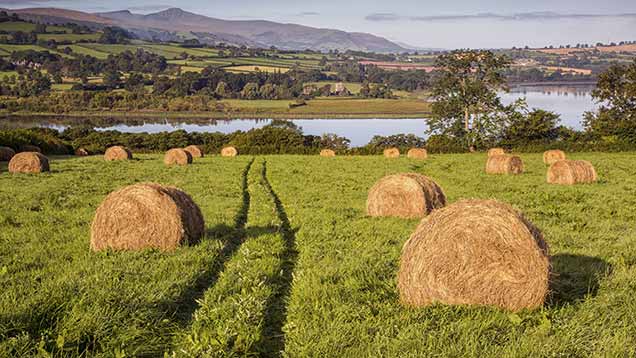10 tips to build a stronger farm before Brexit
 © FLPA / Allen Lloyd/REX
© FLPA / Allen Lloyd/REX In a volatile market, with Brexit on the horizon, a panel of economists, finance experts and farmers have shared their top tips for business management and success strategies.
During a Managing Change and Building Financial Resilience workshop at the NFU conference, panellists spoke about how they had adapted their own businesses and gave advice to farmers looking to improve their productivity.
As NFU south-east regional director William White commented, the topic covered more than just what Brexit would mean for the industry and recognised the need for farmers to constantly adapt.
See also: What the EU agreement on citizens’ rights means for farmworkers
Economist Rohit Kaushish explained: “There is a lot farmers can do to improve what they already have. The volatile market makes it difficult because when the market crashes, it crashes for everyone. The main thing we need is market transparency.”
Top 10 tips
1. Be courageous
Essex arable farmer Tom Bradshaw needed courage and his father’s trust when, fresh from agricultural college, he suggested selling their cows. Now his business plan includes contract farming, horse stables and solar panels, which provides a stable, weather-resilient “backbone”.
2. Be adaptable
Next Generation Forum chairman Richard Bower noted: “Change is a constant.”
3. Look into grants
Mr Bower has used grants to buy equipment and improve his set-up.
4. Try diversification
Maize mazes, B&Bs, open days, renting out land – the possibilities are endless.
5. Sweat every single asset and give things a go
The panel urged audience members to take some ideas home and see what works in order to make a difference.
6. Keep business decisions rational
In a family business, emotions can run high. Professionals can help keep things in perspective.
7. Understand costs/budgeting
Speak to professionals and make sure you know what you are getting. Currently only 20% of farmers know what their cost of production is.
8. Know your strengths and weaknesses
One you can sell, one you can improve. The skills needed to run a business continue to change, so training courses could help keep you up to date.
9. Do not sell more than 25% of your product to one customer
Look into your options, don’t give everything away and shop around.
10. Invest in new equipment
A new system could increase productivity, improve animal health and keep your team safe.
